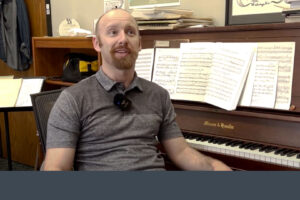When did it become wrong to challenge science?
There is a recent move to publicly bully, disparage and shame those who challenge a purported scientific consensus. It may feel satisfying in the short term to deal with the “deniers” via public belittling or even legal action, but in the long run, this tactic will erode the integrity of scientific institutions and the very process of science.
A current example of this strategy is the effort by the U.S. attorney general and a coalition of 17 state attorneys general to “defend” science by taking on climate change deniers. On the other side, congressional committees are conducting interrogations of climate change believers.
The use of religious terms such as “believer” and “denier” in these arguments has little place in science. Regardless of the scientific topic or the strength of the science — from evolution to climate change to earthquakes — the integrity of science relies on iterative discourse and challenge, however misinformed or conflicted it may appear.
One such scientific issue is increased earthquake activity in the U.S., particularly in Texas and Oklahoma. During the past decade, the number of earthquakes, especially those felt at the ground surface, has increased substantially. The question is whether human activity is causing the increase and, if so, what can be done about it.
Not surprisingly, addressing and answering that question is difficult. In some places, the increase in earthquakes is associated with the disposal back into the earth of water that has been produced from oil and gas wells. But, as we learned in science class, association does not necessarily imply causation.
In fact, causation in science can be difficult to prove, especially in complex systems such as climate and earthquakes. Instead, the scientific method prescribes how to test various hypotheses. In the case of earthquakes, a combination of observational, experimental, statistical and modeling approaches and tools is required.
Those methods, neither easy nor fast, and rarely definitive, benefit from interdisciplinary collaboration and from scientific challenge. Science depends on independent reproduction of results and rigorous testing, and is improved by challenges brought forth from skeptics, however irritating those challenges may seem.
In 2015, the Texas Legislature recognized the complexity and importance of the earthquake issue and put in place a program called TexNet at The University of Texas at Austin’s Bureau of Economic Geology. TexNet will deploy 22 permanent seismometers across Texas and an additional 36 portable seismometers where seismic activity occurs. It also provides research funding to combine key scientific, engineering and other disciplines from several universities to address the complex earthquake issue.
Think about the implications of such collaboration. TexNet, by design, brings together key groups of stakeholders to address the earthquake issue in what I have called “the radical middle” — that all-to-often lonely space where varying interests should, ideally, converge.
Is this not inherently a conflict of interest? How can industry work with those who regulate them? Must not academics maintain autonomy from regulators and industry? Not if we want to meaningfully address the problem, which requires data collected from the new seismometer array, and independent analysis and modeling provided by leading university scientists.
Addressing the problem also requires funding, data and cooperation from the capable technical people exploring for oil and gas as well as those drilling the wells and disposing of the produced water. And finally, addressing the problem requires an understanding of the issues and thoughtful policy from a dedicated regulatory staff that adapts, and not overreacts, to evolving scientific understanding — policy that protects our environment even as it allows industry to operate to provide the energy that fuels our global economy.
Functioning in this radical middle and managing the inherent challenges is not easy, but it is critical for true progress. It takes time to establish trust and bring together different perspectives. It takes patience to deal with — and manage — those who undermine the process. And it takes fortitude to see the process through and thoughtfully address the challenges from skeptics. But it is those challenges, however frustrating, that will ultimately make the scientific outcome more robust and valuable.
The concept of “settled science” is silly. Scientists should at all costs defend the right to challenge science. In addressing challenges, science advances, little by little.
Scott W. Tinker is the state geologist of Texas, director of the Bureau of Economic Geology, and the Allday Endowed Chair in the Jackson School of Geosciences at The University of Texas at Austin. He has been intimately involved with forming and managing TexNet.
A version of this op-ed appeared in the Houston Chronicle, San Antonio Express News, Dallas Morning News, Midland Reporter, The Oklahoman, Dallas Morning News and Austin American Statesman.
To view more op-eds from Texas Perspectives, click here.
Like us on Facebook.



